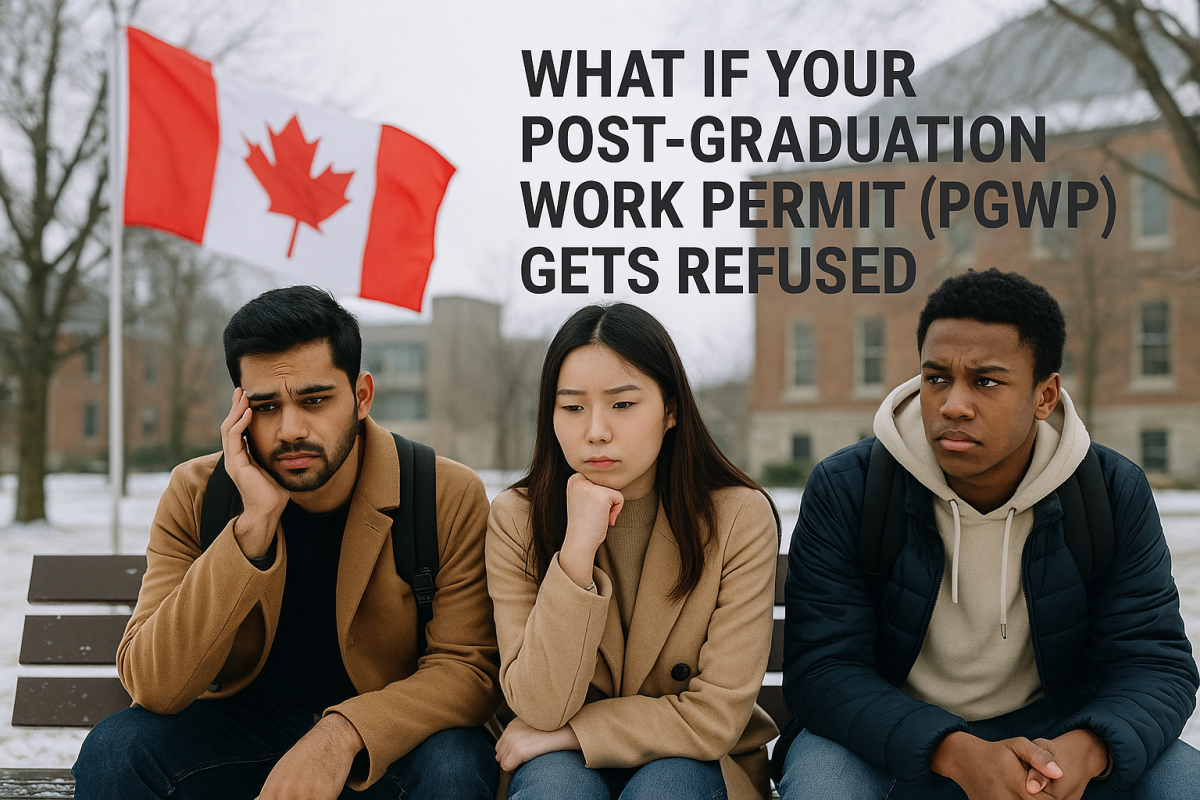To work in Canada on a temporary basis, foreign workers need the work permit. Immigration, Refugees and Citizenship Canada (IRCC) approve Canada work visas under the Temporary Foreign Worker Program (TFWP).

Receiving a PGWP refusal can feel like a punch to the gut. After years of studying in Canada, you’re suddenly faced with uncertainty. But here’s the good news: Many students overcome this hurdle by acting strategically. Let’s break down why applications get denied, how to fix errors, and alternative pathways to stay in Canada.
Understanding why your application was rejected is the first step to solving the problem. Here are the top 5 reasons from IRCC:
| Reason | Example | Solution |
|---|---|---|
| Ineligible program | Studying at a DLI’s non-PGWP-approved course | Verify program eligibility here |
| Part-time enrollment | Taking a part-time semester (except final term) | Submit proof of authorized leave or full-time status |
| Missed deadline | Applying 181 days after graduation | Reapply only if eligible for status restoration |
| Document errors | Missing graduation letter or expired study permit | Correct and resubmit with a Letter of Explanation |
| Unexplained gaps | Unauthorized leave during studies | Provide medical notes or school-approved leave letters |
IRCC’s letter will specify the refusal reason(s). Look for phrases like:
“Not meeting eligibility requirements under R205(c)(ii)” → Program or study issues.
“Insufficient proof of full-time studies” → Submit attendance records or enrollment letters.
Example: Ahmed’s PGWP was denied because IRCC claimed his 8-month program was too short. His consultant proved the program was actually 12 months (with course schedules), and IRCC reversed the decision.
How to apply:
Write a formal letter with evidence (e.g., corrected transcripts).
Submit via IRCC webform or your online account.
You can reapply only if:
You’re within 180 days of graduation.
Have valid status (or qualify for restoration).
Pro tip: Address refusal reasons head-on. For example, if documents were missing, include a checklist confirming all items.
A Regulated Canadian Immigration Consultant (RCIC) can:
Identify hidden refusal reasons (e.g., unauthorized work).
Draft a Letter of Explanation to strengthen your case.
Pros: Stay in Canada legally for 6+ months.
Cons: Can’t work or study.
Secure a job offer and LMIA-exempt permit (e.g., Global Talent Stream).
Requires employer support.
PGWP eligibility resets if you complete another PGWP-approved program.
Express Entry: Gain points for Canadian education/work.
PNP: Ontario’s International Student Stream offers nominations without job offers.
A: No. You must stop working immediately after your study permit expires unless you have another valid permit.
A: You may apply for a visitor record or restore your status as a student if you enroll in a new program.
A: Not directly, but repeated errors can harm your credibility.
A PGWP refusal isn’t fatal—inaction is. Whether you reapply, appeal, or switch pathways, prioritize these steps:
Review refusal reasons.
Gather stronger evidence.
Consult an RCIC for case-specific strategies.
Book a consultation with Sanjay Prasher, RCIC, to navigate your PGWP refusal confidently.
Author Bio:
Sanjay Prasher is a Regulated Canadian Immigration Consultant (RCIC) with over a decade of experience assisting international students. He specializes in PGWP appeals, study permits, and Express Entry.

To work in Canada on a temporary basis, foreign workers need the work permit. Immigration, Refugees and Citizenship Canada (IRCC) approve Canada work visas under the Temporary Foreign Worker Program (TFWP).

Canada is one of the top choices of international students for education owing to its multicultural society, high academic standards, affordability, exiting campus lifestyles and world-class education among many other attributes.